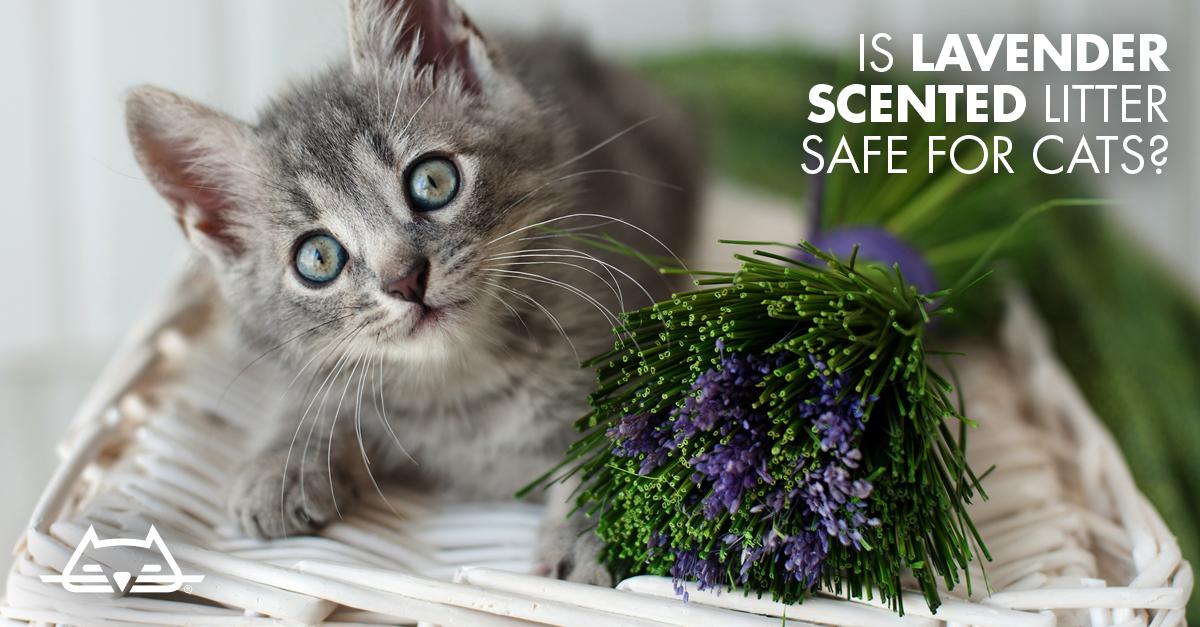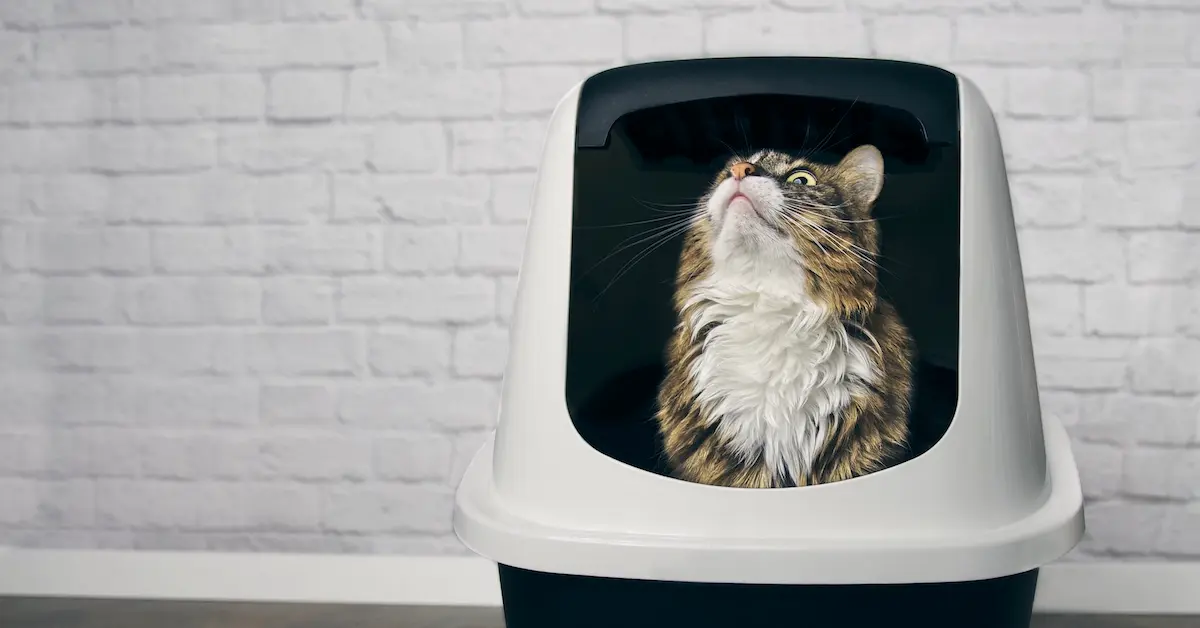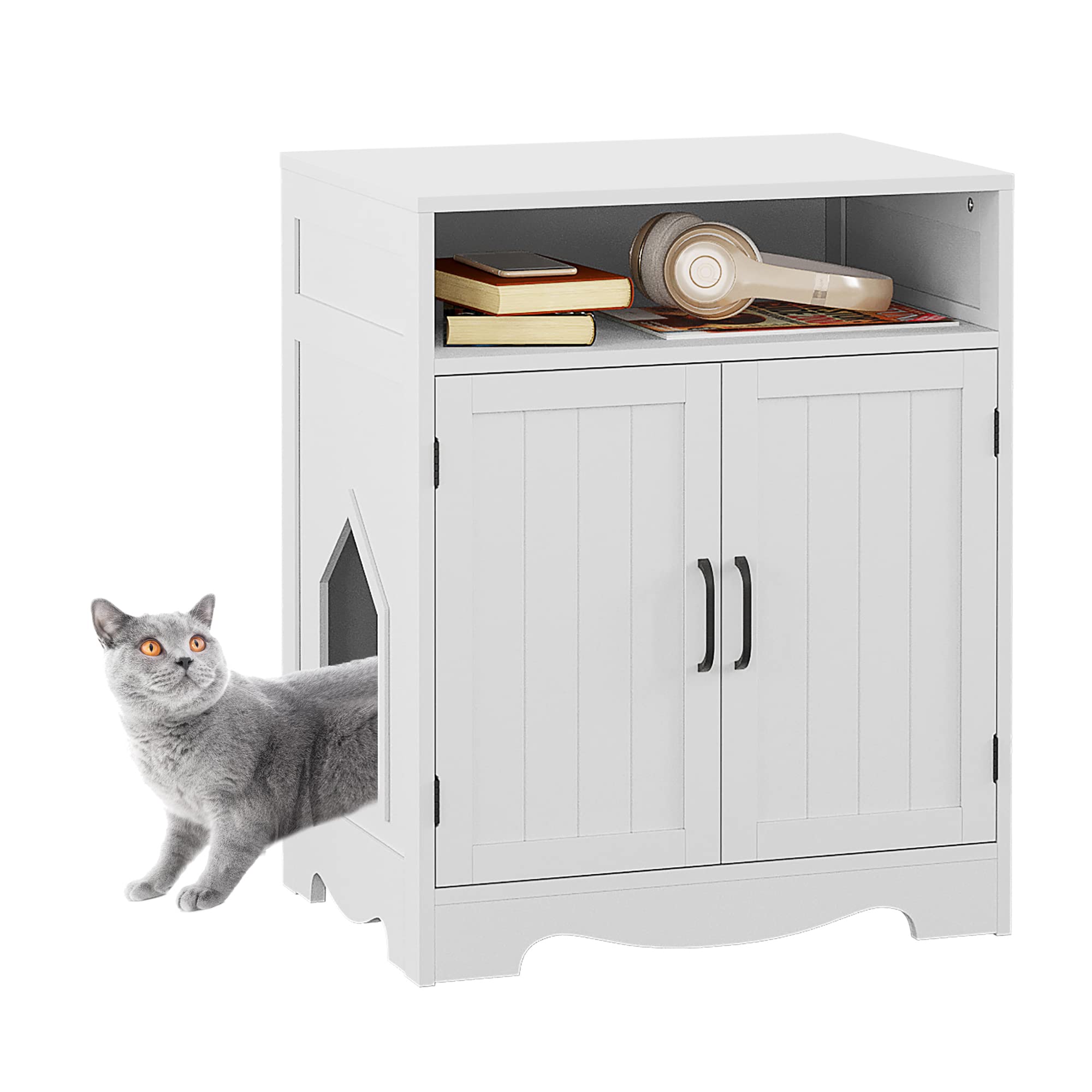Scented litter can be bad for some cats, causing respiratory problems, allergies, and skin irritation. The added fragrances can also mask changes in the cat’s health or litter box habits, making it difficult for owners to detect issues.
When it comes to choosing the right litter for your feline friend, it’s essential to consider their health and well-being. While scented cat litter may appeal to human senses, it can have adverse effects on some cats. Their sensitive noses and respiratory systems may not tolerate the added fragrances well.
Therefore, opting for unscented litter can be a safer choice, ensuring your cat’s comfort and health. It’s crucial to prioritize your cat’s needs when selecting the most suitable litter for them.
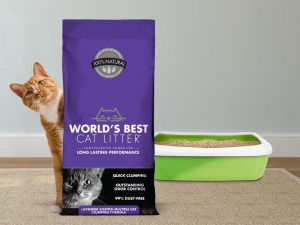
Credit: www.worldsbestcatlitter.com
Understanding Scented Litter
Many cat owners are curious about whether scented litter is suitable for their feline companions. Scented litter is designed to mask the natural odors of cat urine and feces, providing a more pleasant environment for both the cats and their owners. However, it’s essential to understand how scented litter works and its potential pros and cons before deciding whether it’s the right choice for your pet.
How Scented Litter Works
Scented litter typically contains fragrances that are meant to neutralize or cover up the odors associated with cat waste. The fragrance is released when the litter comes into contact with moisture, such as urine or feces. This helps to keep the litter box smelling fresher for longer periods, potentially minimizing unpleasant odors in the home.
Pros And Cons Of Scented Litter
When considering scented litter for your cat, it’s important to weigh the potential advantages and disadvantages.
- Pros:
- Helps to mask odors, keeping the litter box smelling fresher.
- May provide a more pleasant environment for cat owners.
- Available in a variety of scents, catering to different preferences.
- Cons:
- Some cats may be sensitive to the fragrances, leading to respiratory problems or allergies.
- Masking odors can make it difficult to detect changes in a cat’s health or litter box habits.

Credit: www.catster.com
Debunking Myths
Some people believe that scented litter is bad for cats, as they may be sensitive to the fragrances and experience respiratory problems or allergies. Additionally, the added scents can mask changes in a cat’s health or litter box habits. It’s recommended to opt for unscented litter, especially for cats with respiratory issues.
Myth: Scented Litter Causes Respiratory Problems
There is a common misconception that scented litter can cause respiratory problems in cats. However, there is no scientific evidence to support this claim. While some cats may be sensitive to strong fragrances, the majority of cats do not experience respiratory issues due to scented litter. It’s important to monitor your cat’s behavior and consult a veterinarian if you notice any signs of respiratory distress, regardless of the type of litter used.
Myth: Scented Litter Masks Health Issues
Another myth surrounding scented litter is that it can mask underlying health issues in cats. While it’s true that the added scents can cover up the natural odor of urine and feces, responsible cat owners regularly monitor their cat’s litter box habits and overall well-being. Any changes in a cat’s litter box behavior should prompt a visit to the veterinarian, regardless of the type of litter being used. Scented litter should not be solely relied upon to detect potential health problems in cats.
Alternatives To Scented Litter
Scented cat litter may not be suitable for all cats, as some felines may be sensitive to the fragrances, leading to respiratory problems, allergies, or skin irritation. Additionally, the added scents can mask the natural odor of cat urine and feces, making it challenging to monitor your cat’s health or litter box habits. If you’re considering alternatives to scented litter, there are several options to explore. Let’s take a look at some potential alternatives:
Unscented Litter Options
When seeking alternatives to scented litter, one viable option is unscented litter. This type of litter does not contain added fragrances, making it a suitable choice for cats that are sensitive to scents. Unscented litter allows the natural odor of cat waste to be detectable, enabling pet owners to monitor their cat’s health more effectively.
Natural And Organic Litter Choices
Another alternative to scented litter is to opt for natural and organic litter choices. These litters are made from natural materials such as wood, paper, corn, or wheat, and are free from artificial fragrances and chemicals. Natural and organic litters are typically biodegradable and environmentally friendly, offering a safer and more natural option for your feline friend.
Impact On Cat Health
When it comes to choosing the right litter for your feline friend, it’s crucial to consider the potential impact on your cat’s health. Scented litter, while appealing to humans for its odor-masking properties, can pose risks to your cat’s well-being.
Respiratory Health Concerns
Scented litter often contains artificial fragrances and chemicals that can be harmful to your cat’s respiratory system. When your cat digs in the litter box, these particles can become airborne, leading to irritation and breathing difficulties for your pet.
Allergies And Skin Irritations
The fragrances and additives in scented litter can trigger allergic reactions in some cats, leading to skin irritations, itching, and discomfort. Additionally, the chemicals in scented litter may exacerbate existing skin conditions in sensitive cats, causing further discomfort.
Expert Opinions
Expert opinions vary on whether scented litter is bad for cats. Some cats may be sensitive to the fragrances, leading to respiratory issues or skin irritation. The added scents can mask natural odors, potentially hindering owners from detecting health changes or litter box habits in their feline companions.
Veterinarians’ Views On Scented Litter
Some cats may be sensitive to the fragrances in scented litter and may experience respiratory problems, allergies, or skin irritation. The added scents can also mask the natural odor of cat urine and feces, making it difficult for owners to detect changes in their cat’s health or litter box habits.
Research Findings On Cat Preferences
Cats have a highly developed sense of smell, so the subtle scent in kitty litter is designed to be appealing. However, some cats may be more sensitive to scents than others. If you or your cat experience sneezing or coughing around scented litter, consider switching to an unscented version.
Choosing The Right Litter
When it comes to selecting the ideal litter for your feline friend, it’s essential to consider factors that prioritize your cat’s health and well-being. Opting for the right litter can make a significant difference in your cat’s litter box experience.
Factors To Consider When Selecting Litter
- Cat’s Preferences: Consider your cat’s preferences and habits when choosing a litter type.
- Health Concerns: Be mindful of any respiratory issues or allergies your cat may have that could be exacerbated by scented litters.
- Odor Control: Choose a litter that effectively controls odors without relying on strong artificial fragrances.
- Texture: Some cats have texture preferences, so experiment with different litter textures to see what your cat prefers.
- Environmental Impact: Opt for eco-friendly and biodegradable litters to reduce your carbon footprint.
Tips For Transitioning Litter Types
- Gradual Transition: Introduce the new litter gradually by mixing it with the old one to help your cat adjust.
- Monitor Behavior: Keep an eye on your cat’s behavior during the transition to ensure they are comfortable with the new litter.
- Positive Reinforcement: Use treats and praise to encourage your cat to use the new litter successfully.
- Patience: Allow your cat time to adapt to the new litter, as sudden changes can cause stress.
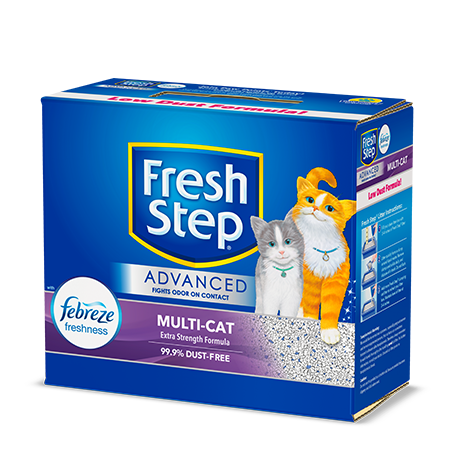
Credit: www.freshstep.com
Frequently Asked Questions
Can Scented Cat Litter Hurt Cats?
Scented cat litter can potentially harm cats by causing respiratory problems, allergies, and skin irritation. The added scents can also mask natural odors, making it difficult to monitor a cat’s health. Some cats are sensitive to scents, so unscented litter may be a better choice.
Should I Get Scented Or Unscented Cat Litter?
Some cats may be sensitive to scented litter, causing respiratory issues or skin irritation. The scents can mask natural odors, making it hard to monitor your cat’s health. Opt for unscented litter to play it safe and prevent potential problems for your cat.
What Litter Should Cats Avoid?
Cats should avoid scented litter as fragrances may cause respiratory issues, allergies, and skin irritation. Scented litter can mask natural odors, making it hard to detect health changes. Opt for unscented or natural litters to keep your cat safe and healthy.
What Is The Healthiest Litter For Cats?
Some cats may be sensitive to the fragrances in scented litter, which can lead to respiratory problems, allergies, or skin irritation. Therefore, it’s best to opt for unscented litter to avoid any potential health issues. Natural litters with minimal dust, such as grass litters, are also a good option for cats with respiratory issues.
Is Scented Litter Safe For Cats To Use?
While scented litter may not be harmful to all cats, some cats may be sensitive to the fragrances in scented litter and may experience respiratory problems, allergies, or skin irritation. It may also mask changes in a cat’s health or litter box habits.
Conclusion
It’s best to opt for unscented cat litter to avoid potential health issues. Some cats may react negatively to scented litter, experiencing respiratory problems or skin irritations. Keeping the litter fragrance-free allows for better monitoring of your cat’s health and litter box habits.
Prioritize your cat’s well-being with unscented options.


